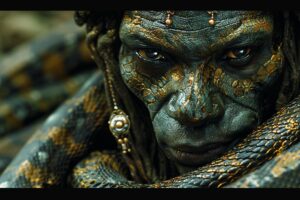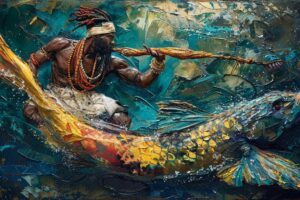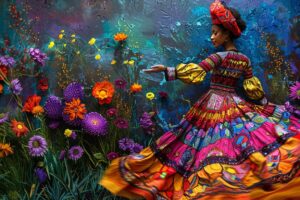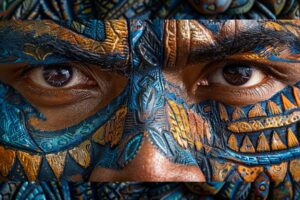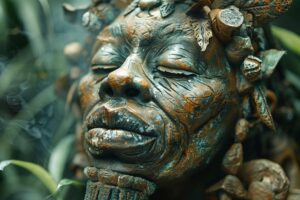Goddess Mawu and Lisa: Exploring the Dual Deities of African Mythology
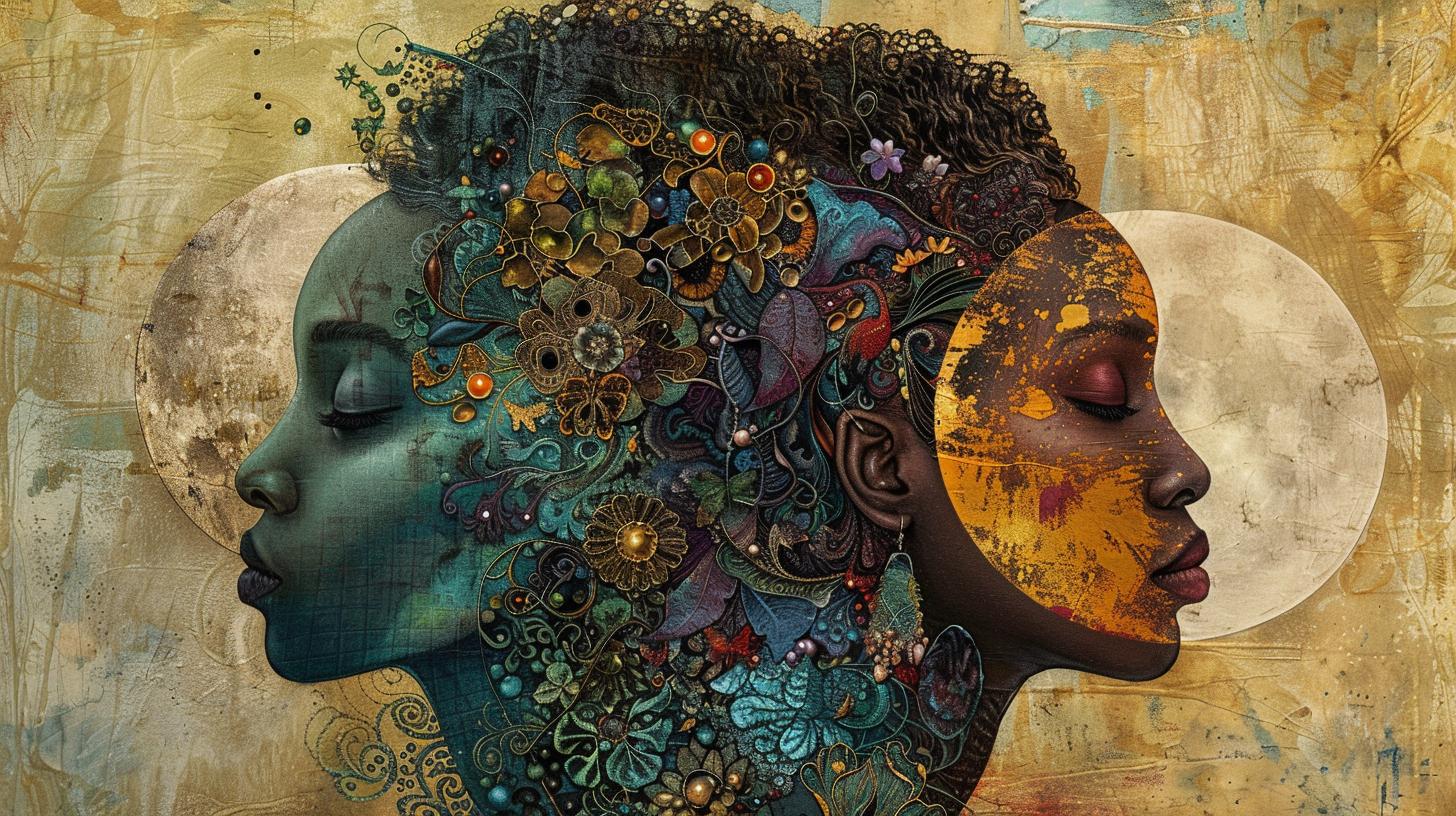
The goddess Mawu and Lisa are pivotal figures in West African mythology, representing the sun and moon. They are known as powerful creators and rulers of the universe, with intricate family dynamics and roles in human existence.
Their influence extends beyond Africa, shaping spiritual practices and cultural beliefs worldwide.
The Mythological Origins of Mawu and Lisa
In West African mythology, the divine beings Mawu and Lisa are revered as powerful forces responsible for the creation and governance of the universe. Their origin story is deeply rooted in the traditions of the Gbe peoples, where Mawu represents the lunar and feminine qualities, while Lisa embodies the solar and masculine aspects.
- Associated with the Sun and Moon
- Creation Stories and Family Dynamics
- Roles in the Universe and Human Existence
As twin deities born to the primordial Nana Buluku, Mawu and Lisa hold a special place in the cosmology of the Gbe cultures.
Their mythological origins highlight their complementary nature and dual roles in shaping both the physical world and the lives of humanity.
Mawu and Lisa in African Folklore and Traditions
In African folklore and traditions, Mawu and Lisa are revered deities symbolizing cosmic balance and harmony.
Association with the Sun and Moon
These twin gods are associated with the sun and moon respectively, embodying the dualities of light and darkness, day and night.
Creation Stories and Family Dynamics
According to myth, Mawu and Lisa are the offspring of Nana Buluku and are creators of all life on Earth. Their intricate family relationships shape the fabric of the universe.
Roles in the Universe and Human Existence
Mawu and Lisa play crucial roles in maintaining order in the universe and guiding human existence.
Their influence extends beyond the physical realm into the spiritual and moral aspects of life.
Cultural Influence and Adaptation of Mawu-Lisa
The cultural influence and adaptation of Mawu-Lisa have extended beyond its origins in African folklore, impacting various spiritual traditions and belief systems worldwide.
Connection to Yoruba and Fon Deities
Mawu-Lisa’s connection to Yoruba and Fon deities highlights the interplay between different cultural mythologies and the evolution of divine figures in the region. This linkage emphasizes the shared elements and beliefs present in diverse spiritual practices.
Transformation and Interpretation Across Regions
The transformation and interpretation of Mawu-Lisa across regions reflect the adaptability and enduring relevance of this deity in different cultural contexts. As beliefs intersect and merge, the deity’s characteristics and significance continue to evolve.
Significance in Vodun and African Religions
In Vodun and various African religions, Mawu-Lisa holds significant importance as a central deity representing creation, balance, and morality. Its presence in religious practices underscores its role in guiding believers and maintaining cosmic order.
Mawu-Lisa Beyond Africa
Explore the influence of Mawu-Lisa beyond the borders of Africa, encompassing diverse cultural contexts and spiritual practices.
Spread to the Diaspora and Spiritual Practices
- Discover the migration of Mawu-Lisa beliefs to locations outside Africa.
- Learn about the preservation of rituals and ceremonies in the African diaspora.
- Understand how Mawu-Lisa’s essence resonates in different spiritual traditions.
Rituals and Worship in Different Contexts
- Examine the adaptation of Mawu-Lisa worship in various cultural settings.
- Compare and contrast rituals associated with Mawu-Lisa across different regions.
- Recognize the significance of these practices in maintaining cultural heritage.
Contemporary Relevance and Cultural Impact
- Assess the current relevance of Mawu-Lisa in modern society.
- Investigate the enduring impact of Mawu-Lisa on arts, literature, and culture.
- Reflect on the spiritual, social, and cultural implications of Mawu-Lisa’s legacy.
.

